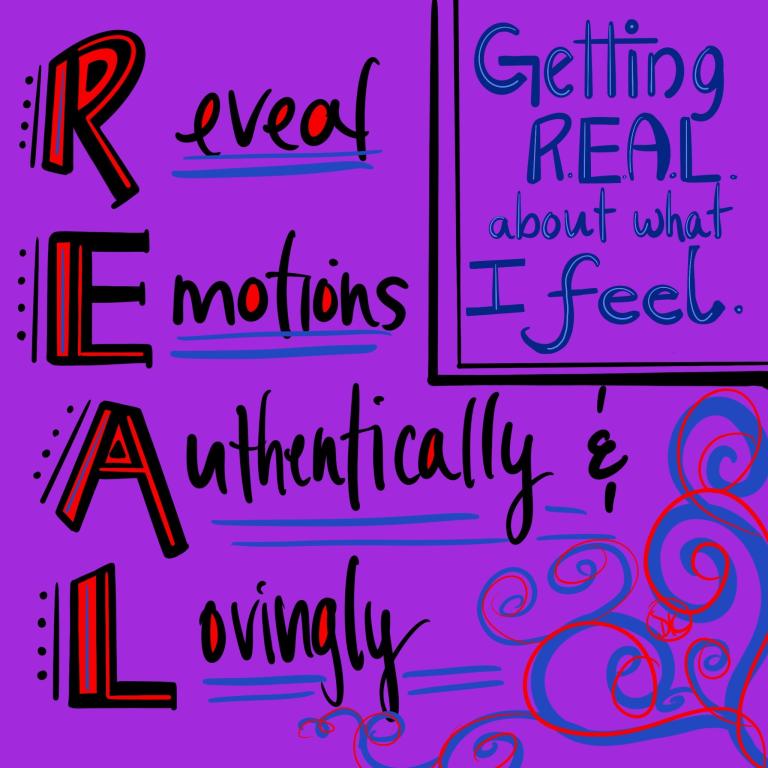
I am writing to my past self. I am writing to the present you. The you who believes you have deconstructed and now you are on the right path—the progressive path.
I am writing to me, who, in the past, wrote to others in the same manner as you are now. I cloaked insults and attacks under the veil of well-meaning advice. I hid accusation under affirmations of alleged wokeness without really explaining what I was affirming nor wanting to challenge. Instead, I typed out heavily disguised justifications for scapegoating.
I caught myself doing all of this. I witnessed myself—or rather, the egoic part of me, that wanted to disregard the hard dualism and false dichotomies. I mean, everyone else was doing it anyway. But the real me—my true Self—knew I couldn’t do that. I had to arrest and cuff myself to restrain and contain the mess I was creating.
I knew I had to be honest with myself and I knew that I had to ensure that my own theology was consistent all the way through.
So, I had to say to myself:
I see you. I really do.
I had to look at myself in the mirror and ask myself if I was willing to compromise all the hard work I had put into myself for mere, temporary aggrandizement. I had to ask myself: Is this really progressive? And more than that, is this really in line with what I understand to be the teachings of Jesus the Christ?
I Can See Clearly Now
When I first was able to generally define what I was mentally experiencing—this demolition of all that I knew, this deconstruction—I was cognitively aware that I had to mentally strip down all the layers of influence that I had clothed myself in over the span of my life.
I had to look beyond the space of what was in front of me, and I had to really grab hold of each and every bit of information that I had archived in my psyche and ask myself: what about this idea do I value and why?
Stripped
I had to disrobe. Because the truth of it all was so simple yet so complex: I didn’t know what I looked like naked. I started stripping down. I had to know what I looked like naked. I had to know what was underneath all of my clothes.
And so I began the most poetic and thought-provoking strip dance of my life.
What amazed me most was, the more I stripped down layers off of myself—the more I “deconstructed” as some say; the more I considered my point of view from the angle of the collective rather than the individual. More than that, and more so in hindsight, I also realized that I wasn’t done peeling back layers.
The Robes We Put On
As we evolve; as we go from child to teen to young adult and then on to more mature adults, we are influenced by collective ideals—whether they be from public educational institutions, family traditions, workspaces, religions, political ideals and even friendship circles.
Other times, we are influenced by individual ideals; by our father or mother, a random stranger, a professor or teacher, an ex-lover, or a friend.
We accept and embrace ideas that come as a majority way of thinking, as well as the ideas expressed as personal, individual, and non-conforming philosophy- similarly represented by that weird hippie friend we had in college.
All of these ideas act as robes that we put on and walk around with, especially if there is something about that idea that we ourselves identify with.
Then comes that point that so many of us experience. We begin questioning everything we know. We start to open our eyes. We realize that we have to strip down the buildup of the influences of others that we use to identify our beliefs and values.
You May Disrobe
We reach this destination of self-observation. When we look in the mirror, we notice that we have layers and layers of robes covering up our human frame and decide that they look too frumpy and silly to continue wearing.
Sometimes, we take off individual, singular layers. Here’s that one thought I held on to that I knew was inconsistent with my other beliefs.
Or, we remove a bunch of robes at once. We remove entire religious beliefs, political beliefs, or societal beliefs as a whole. These are ideals that we scrambled to cover ourselves up with to fit in with the latest trends. These are collective ideas.
I Don’t Want to Be Naked
My stripping away revealed garments that I hadn’t ever known. So, while I began disrobing, I discovered robes underneath that I hadn’t actually seen myself in before, and so before taking those robes off, I wore them for a time. I thought: “Maybe this robe will be comfortable to wear for a bit. It looks good on me, anyway.”
Needless to say, I got nervous about stripping down, and so I stopped disrobing some of the robes or identities that I had picked up over the years. I started hesitating in how naked I really wanted to be. How much of myself did I really want to expose?
I stopped at my “liberal linens”.
It was while I was donning this apparel that I felt more confident in attacking others that hadn’t stripped down as much as I had. So, in my effort to help them remove their layers—tearing and pulling at their robes and trying to rob them of their coverings; I wounded others.
I said things like:
“You can’t call yourself a Christian if you support… (fill in the blank).”
I also said things like this:
“God loves everyone, there is no hell, all will be saved, we are all brothers and sisters,” followed by, “You must not know love, which means you don’t know God, because you voted for Trump.” Or “People who are anti-choice are anti-women.” And, “All white people have privilege and are racists from birth,” while at the same time proclaiming that there is no original sin but only original goodness.
And while I was parading around in these linens, I was also tripping over this robe. This robe was too big for me. I hadn’t remembered that when I decided to keep it on. I also hadn’t remembered that this robe was torn. Threads were coming loose. I began picking at the threads.
Loose Threads Lead to Tantrums
Soon after, a seam came loose. What it revealed underneath was another robe. I wanted to see that robe; I continued to pick at the threads.
Do you know what happens when you start picking at the beliefs you are also clinging tightly to? It looks like putting on and taking off the same garment over and over. It reminds me of my son, when he’s having a battle with me about which pajamas to put on before bed.
He puts on my choice, but then decides he really doesn’t want it on, so he fusses and struggles to try and pull it off. Meanwhile, I am searching for a different shirt. Maybe he wants short-sleeves tonight? But he has decided that he will wear it. So, he pulls it back down over his head.
I turn around to put the other shirt back in his dresser, but then he says “No” and gestures for me to give him the shirt I was returning to his drawer. I hand it to him and he throws it across the room, and begins pulling his shirt off again. This continues for another 5 minutes until he decides he will wear the long-sleeve shirt, but only because he made the decision, ultimately, in the end.
I imagine the scene I just described looks a lot like the cognitive dissonance I was carrying in my mind.
So I teeter-tottered with my liberal standing. I knew I believed this, but if I believed that, it would make the former belief untrue. I would picture myself as a balance, trying to keep this belief equal to that belief. But I really couldn’t do it. My arms grew very weak. The robe I was wearing started to feel like lead and not the lightweight fabric I had originally believed it to be.
What am I saying? What point am I trying to make here? Am I trying to just attack the left? Am I against progress? No, not at all.
I love that while unfolding the layers I have covered myself with, I revealed this layer to me. I revealed a collective perspective that I actually had feared I wouldn’t ever understand.
Did I mention that Ayn Rand was one of (and still is) my favorite philosophers?
I was grateful that I wasn’t an extreme objectivist. And not that there is anything wrong with such a view as Objectivism, it’s just that such a robe didn’t fit me, much as this Progressive robe doesn’t seem to be fitting me.
The reason I want to continue disrobing is because I know this can’t be it. I know that I am not naked. I know that I haven’t exposed myself enough.
I also know that I cannot hold the tension of opposites on such an unbalanced scale. Just as I didn’t find any center-point of balance with my objectivist ideals, I am not finding balance with my progressive, collectivist ideals.
I cannot make sense of the idea that while I beg for diversity it means that I hinder and silence the diversity that opposes my ideals. I cannot make sense of the idea that diversity is only represented and then demonstrated by physicality and not also mentality.
I don’t want to trade in robes for labels. If I am stripping down to the bare essentials, I cannot have anything covering up what must be revealed.
I See You, I Really Do
All of this is to say, I see you. I see you working hard to slip off those robes, too. I know that you’ll notice a chill in the air once you take off another layer. I know that the fabric was comfortable and warm.
I see you seeing others- you see that they still have much transformation to go through. I see that it disappoints you that others have not begun to see the bulkiness of the robes they wear and you only want to bring them comfort and relief.
I hear you when you lament about your fears of others moving to the hard right when you believe they ought to move left.
I understand why you think they are operating on a low frequency. You’ve discovered your amplifier already and they have not. So in much of your declarations, you are effectively trying to share your amplifier with others.
But the thing is, your amplifier won’t always provide the linear response you want. If you aren’t careful, you can actually distort the frequency of others.
Consider a “frequency response”, a term that relates to how sound amplifiers work:
If the amplifier doesn’t faithfully reproduce input frequencies in its output, it suffers from what’s called a frequency response, which means it boosts some frequencies more than others. (Sometimes this effect is deliberate.)
In our haste, while we are going through any transformation, we want to express what it feels like and looks like to others. We want to share the new view we have with the world. But our amps only boost some frequencies more than others. It doesn’t necessarily mean that their frequency doesn’t have the capability to be boosted, thereby defining it as a low frequency. What it really means is that we just can’t hear their frequency, because we’ve boosted our own. Perhaps, our frequency is too loud and it’s drowning out the sound of others?
Amplifiers also have to work across a wide range of amplitudes (typically that means sound volumes), which leads to another problem. As the input amplitude increases, the amplifier will struggle to produce a corresponding increase in output, because there’s a limit to how much power it can make. That means any further increases in the input will simply produce the same level of output—a phenomenon known as clipping—and increasing amounts of distortion.
Humans have to interact across a wide range of amplitudes as well. If we are not careful to ensure our own power supply, we are only going to distort what it is that we want to get out as our message.
Another problem the amplifier has is called feedback—and people who use microphones on stage are very familiar with it. If a microphone is turned up too much or placed too near to a loudspeaker, it picks up not only the sound of a person’s voice or an instrument (as it’s supposed to), but also the amplified sound of the voice or instrument coming from the speaker slightly after, which is then re-amplified—only to pass through the speaker once more and be amplified yet again. The result is the horribly deafening whistle we call feedback.
That feedback comes as a result of using accusation to affirm and using scapegoating and suppression as a form of salvation.
We accuse others (many of whom we don’t know) of being siblings of supremacy and relatives of racism. We place our hands upon their foreheads and proclaim that we are doing God’s work.
“Lord, have mercy on this Jezebel, on this tyrannical capitalist—Lord, wash away their sin of their white solidarity and let them feel the power of Jesus Christ our Savior! Pulverize the devil within. Pull that inner KKK out of this sinner, Hallelujah! Almighty God, cleanse this sister of her supremacy. Father, heal this brother of bigotry. Praise God. The power of Christ compels you. You are forgiven, my dear sister of Christ. Amen.”
At least that’s how I imagine my friends and family saw me. As an over-zealous, self-righteous preacher for profit that was saving souls on the beaches of Mazatlán during spring break.
Without Consent, It’s Called Rape
I wasn’t really walking my talk, however. All the while I was hoping to release others from their racist views, their sexist ideologies, and their narrow theological perspectives; I was also attacking everything they knew— without gaining their consent to disrobe. I was essentially robe-raping others.
We are eager creatures. We get so excited over our discoveries. In our excitement, we forget to run our ideas through our filters. We almost can’t contain our ideas and our new-found understanding that we re-amplify what was amplified in us, and it then produces a horrible screeching sound instead of a lovely, symphonic sound.
Again, at least I did. In an effort to better contain the frequency I want to amplify, I have had to turn the volume down a bit. Now by contain I don’t mean box in. I mean that I want to provide the right environment to send the sound out into. And in order to do that, I have to really reflect and practice before I perform on the stage.
Homeschool Methodology
There is a method by which we can successfully produce a feedback that not only raises our own frequency, but the frequency of others as well. It starts with the same acceptance and grace we believe God provides for all of us.
I get the impulse to discipline and correct the ill-informed teachings that influence so many others. Trust me, I get it. It’s one of the reasons I homeschool my children. I wanted to give them more opportunity to learn while also controlling it.
But one of the first things I learned about educating my own children was this: You cannot control your students any more than you can control your children! It’s a complex situation that I intentionally put myself in that ultimately helped me grow as a parent.
Public school systems have heavily influenced the way in which we approach our own transformation. We are accustomed to environments in which we are controlled and contained. We are not entirely free to leave the premises, or any other parameter that has been defined, but we need this as we grow because the containment of it all keeps us safe.
We get comfortable within the area that we have been contained in that we forget once we are adults, we are free to move outside our comfort zones. In systems like schools, we aren’t in control. We need consent to discover.
Homeschooling has taught me that if I accept the idea that I cannot control my children (Dr. Shefali is notorious for her insight on this idea); then I must also accept that I cannot control how they discover. Which further means, that I cannot control how they learn. Either they will consent or they will reject my teaching approaches. It’s really that simple.
When I first began, I had to cater to five individual children. Just as parenting requires a different relationship with each child, instructing requires different methods of educating. There isn’t a once-size-fits-fits all form of parenting or teaching. It’s a sad reality, initially, but because I was committed to homeschooling, I was willing to rethink my styles.
What this means was I needed to meet each of my children, individually, at their level, and really pay attention to where their passions led me. It was their own pursuit of what interested them that allowed me to present to them curriculum and lectures that would impact them enough that they would absorb the information rather than dismiss it.
Like Children
Ultimately, in a rather circuitous way, I am saying that I have to be careful about which— and how many— robes I am draping over my children. I have to let them select the fabrics and lengths. I have to let them choose which robes to put on and I also have to let them take off some robes too.
Knowing all of this has forced me to realize that I have to take this approach with not only my children, but everyone I interact with. What’s more, I can’t say that I have observed any of my children trying to put robes on one another. They each appreciate what the other is wearing, they accept each other and the robes they wear. No one tries to tear a robe off the other.
That doesn’t mean that they don’t mimic one another, however. They watch each other put on and take off robes, and sometimes, they all want to be dressed alike, in the same robes. Other times, they each remove a robe, and one by one, the others follow.
Take for instance the belief in Santa. One by one, each child added more and more clues to reveal that Santa was just Mommy and Daddy. And surely, there might have been an older child, or two, that wanted to pull that robe off the little ones, but they just needed reminding that the others needed to consent to the disrobing of that belief.
Consent is the most important part of this equation for transformation. I consented to myself to begin stripping down. No one forced me. No one took my robes from me. Just as no one forced me to wear the robes. I consented to the putting on of the garments, and I gave myself consent to remove the garments—to get naked.
Consent can be used in the same sense as grace. It looks like acceptance. It looks like the same extensions you gave yourself while you were beginning your own strip-down. You opened your hands and you let go of the ties of the robe you are wearing. But what about others?
We tie others up in their own robes when we use others as our antagonist for our blogs and our articles. We have characterized an enemy who is in dire need of our pontificating, but when we do this, we simply keep them covered.
I see you, I really do. I see you see them, all wearing robes, just like you and me. None of us are naked…yet. Please remember, all of us need to consent to the stripping down. They can’t disrobe if you are tying knots in their belts.
















